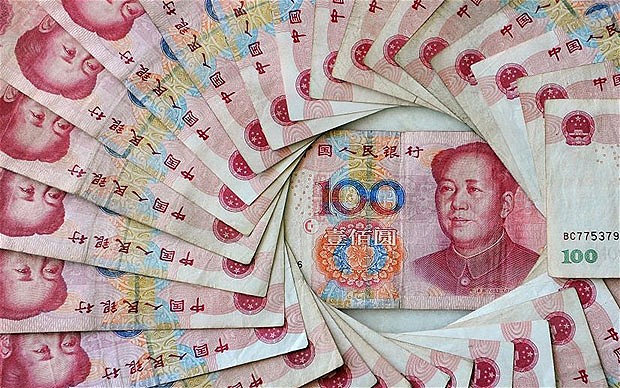On August 24, stock market saw its biggest fall in six and a half years, the Sensex plunged over 1,600 points losing six per cent of its value in one day.
Reasons:
- Extreme market volatility mainly due to outside factors
- The consequence of globalisation i.e integration of global financial markets
- Main reason is the devaluation of Yuan by China to spur growth. China devalued because: Two reasons
- China links its currency with US dollar, so if US dollar rises, Renminbi rises too. Presently, US dollar value appreciated(increased) while Euro’s depreciated. Which naturally meant Renminbi’s value increased compared to Euro’s, making China’s exports to Europe costlier. As China’s growth has slowed down to historical low(India outstripped Chinese growth in last two quarters), it cannot afford lower exports. Hence China devalued its currency to make its exports competitive again.
- China wants to make Renminbi the reserve currency of the world like the Dollar and Euro. It also want Renminbi to be included in IMF’s basket of currencies which it uses for “special drawing rights,”(presently dollars, euros, yen and pounds included). These two goals are possible only if China allows market to determine the value of Renminbi. The recent devaluation was to bring it closer to its real value in the market.

- Why China’s devaluation effected Indian stock market:
- China is one of the biggest trading partners. If china currency value decreases, our imports become cheaper there by increasing competition for domestic industry. Our exports become costly, will affect our mining industry majorly.
- As China devalued Renminbi without a warning, investors feared a currency war(devaluations) by major economies to keep their exports competitive. The panicked investors took out their money from Indian stock markets and invested in other places-Gold, US dollar etc
- But presently Indian stock market recovered.
Indian response:
- Supported Rupee with conventional means by using foreign exchange reserves
- Finance Minister and the RBI Governor have reassured investors
Is there eminent danger?
- The fact that India’s macroeconomic fundamentals are in much better shape than at any time recently, should be hammered home. Cheaper oil has certainly helped. India’s GDP growth should be on an even keel.
- Other indicators point to an economy on the mend. The current account deficit is pegged at a healthy 1.3 per cent of the GDP. Exchange reserves are at 8 to 9 months of imports.
- Prices of other important commodities such as coal are still falling. So, at least in dollar terms the import bill should not go up.
- However, on the exports front, the picture is hardly flattering. Aggregate merchandise exports have fallen for eight months in a row, a clear sign of demand compression in major trading partners.
- A weaker rupee should help in improving competitiveness but then currencies of India’s major competitors too have fallen.
Problems due to stock market plunge:
- Wealth in the country lost
- Foreign Investors take back their money->rupee value lowers
- A cheaper rupee can pose problems for the large number of companies who have kept a portion of their external commercial borrowings un-hedged.
- Cheaper rupee also means costly imports
- Indian equities, already under pressure, will face further selling pressures as fund managers shift portfolios away from perceived risks that the country represents.
- The government’s ambitious disinvestment target of Rs.69,500 crore looks unachievable if present trends continue.
One thought on “Reasons for the recent Stock Market plunge and its effects on Indian economy”